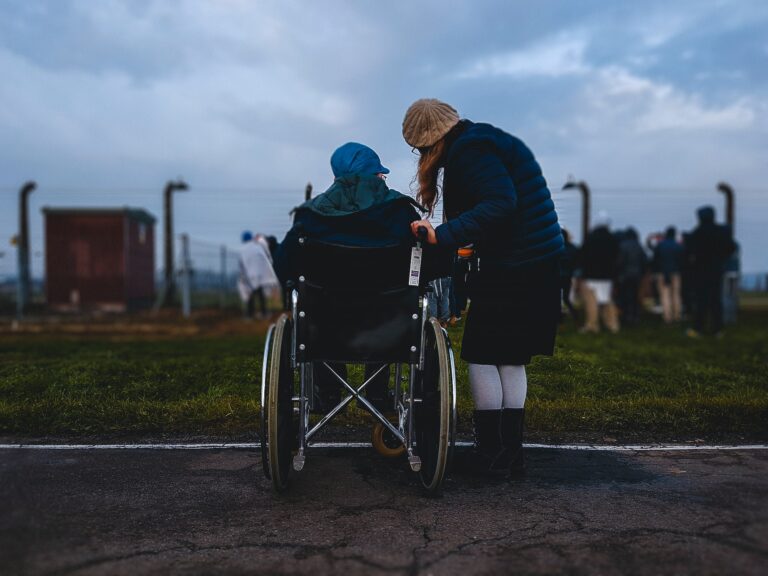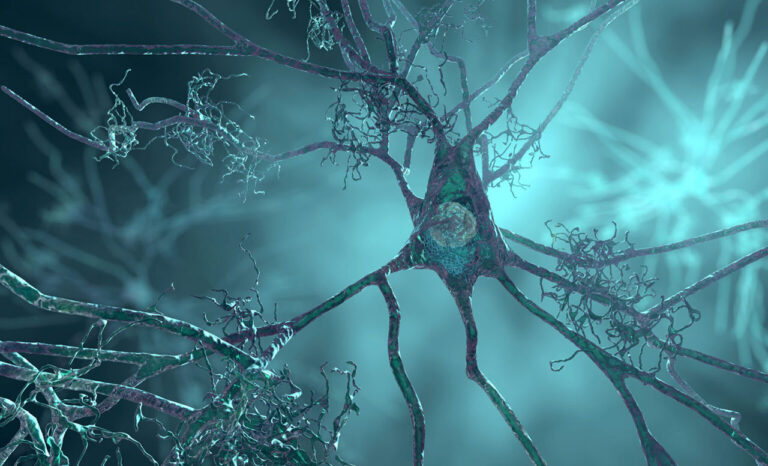
Uvimbe wa muda mrefu unaopunguza myelinati polyneuropathy (CIDP) and amyotrophic lateral sclerosis (ALS) are rare and debilitating neurological disorders. Though both conditions affect nerve and muscle functions, they significantly differ in the type of nerves affected, causes, signs and symptoms, progression, prevalence, diagnosis, and treatment.
Pata Usaidizi wa Kifedha
This article discusses the key differences between these disorders to help patients receive the appropriate treatment.
What Is Chronic Inflammatory Demyelinating Polyneuropathy (CIDP)?
CIDP is a rare and long-term autoimmune disorder that mainly affects the nerves of the peripheral nervous system. In this condition, the immune system mistakenly attacks and destroys the myelin sheath, a protective layer covering the nerve fibers.
The excessive inflammation caused by an autoimmune attack damages the peripheral nerves, which results in progressive muscle weakness, loss of strength, and sensory problems.
What Is Amyotrophic Lateral Sclerosis (ALS)?
Amyotrophic lateral sclerosis (ALS) is a progressive neurodegenerative disorder that affects the motor nerve cells of the central nervous system (motor nerves in the brain and spinal cord). The motor nerves mainly control breathing and voluntary muscle movements. When signals from nerves do not pass on properly to the muscle due to motor neuron degeneration, the muscle becomes weak and starts to twitch.
ALS is also sometimes known as Lou Gehrig’s disease and motor neuron disease (MND).
CIDP vs. ALS: Causes
The exact cause of both neurological conditions is still unclear. However, an abnormality in the immune system has been found to cause CIDP, which is why it is known as an autoimmune condition.
ALS is considered a hereditary disease since various research studies have highlighted a genetic link. For instance, mutations in specific genes such as the C9orf72, ARDBP, and FUS genes can lead to ALS, as these genes regulate the normal functioning of motor neurons. This form of ALS is known as familial ALS.
According to estimates, a genetic mutation has been found in 60% of those with familial ALS.
CIDP vs. ALS: Key Signs and Symptoms
The classic presentation of CIDP is symmetrical muscle weakness, especially in the legs, which later spread to the arms. CIDP patients may also experience the following symptoms:
- Loss of reflexes
- Tingling sensation and numbness in arms and legs
- Loss of balance and difficulty walking
Typically, the symptoms of CIDP develop gradually over several months.

On the other hand, ALS mostly impairs motor function, which results in stiffness, twitches/cramps, and weakening of the muscles. Usually, one leg is first affected by these symptoms (asymmetrical presentation) before they extend to other body regions. Furthermore, as the condition worsens, ALS patients also experience:
- Kupunguza uzito
- Muscle wasting (atrophy)
- Slurred speech (dysarthria)
- Difficulty chewing or swallowing (dysphagia)
However, in ALS, sensory functions are mostly unaffected, and patients do not experience tingling and numbness.
Zungumza na Mtaalamu
Kuhusu Msaada wa CopayCIDP vs. ALS: Disease Progression
CIDP is a long-term and rare disease that progresses gradually and reaches its severe state after 8 weeks.
On the other hand, when ALS starts, it progresses rapidly and worsens over time.
CIDP vs. ALS: Prevalence
According to NORD, around 5 – 7 cases of CIDP per 100,000 individuals are reported yearly. CIDP can occur in any age group but is more prevalent in older people (50s – 60s). Men are more at risk of CIDP than women. Furthermore, there is a chance that CIDP may recur after treatment.
In contrast, ALS affects around 2 – 5 people in every 100,000 individuals worldwide, and almost 32,000 people are living with ALS in the United States. ALS disorder can strike at any age, but symptoms mostly develop after the age of 50 or between ages 50 and 75.
Like CIDP, ALS is also more common in males than females.
CIDP vs. ALS: Diagnosis and Treatment Strategies
The diagnosis of CIDP and ALS is difficult because of symptom variations. However, doctors conduct various tests such as electromyography, nerve conduction test, nerve/muscle biopsy, MRI, spinal tap, and blood tests to confirm ALS and CIDP diagnosis.
Although doctors follow the same diagnostic procedures for CIDP and ALS, their treatment strategies differ.
In the case of CIDP disorder, three standard therapies are as follows:
- Dawa za Corticosteroids
- Plasma exchange
- Tiba ya IVIG
In the case of ALS, no treatment can reverse the motor nerve damage. However, some medications (i.e., Riluzole, Edaravone, and Tofersen) approved by the FDA, as well as rehabilitation (i.e., physical, occupational, and speech therapy), can help to slow the disease progression, improve quality of life, and extend life expectancy in patients.
Summary
CIDP is an autoimmune disorder that affects the peripheral nervous system, while ALS is a neurodegenerative disease that affects the motor nerves of the central nervous system. Although both conditions have different causes, symptoms, rates of progression, and treatment procedures, they share the same diagnostic procedures. Understanding these key differences can help manage the condition and improve patients’ quality of life.
MAREJEO:
- Echaniz‐Laguna, A., Degos, B., Mohr, M., Kessler, R., Urban‐Kraemer, E., & Tranchant, C. (2005). A study of three patients with amyotrophic lateral sclerosis and a polyneuropathy resembling CIDP. Muscle & Nerve, 33(3), 356–362. https://doi.org/10.1002/mus.20475
- Amyotrophic lateral sclerosis (ALS). (n.d.). National Institute of Neurological Disorders and Stroke. https://www.ninds.nih.gov/health-information/disorders/amyotrophic-lateral-sclerosis-als
- Amyotrophic lateral sclerosis: MedlinePlus Genetics. https://medlineplus.gov/genetics/condition/amyotrophic-lateral-sclerosis/#causes
- Gogia, B., Cabrero, F. R., Suheb, M. Z. K., Lui, F., & Rai, P. K. (2024, March 4). Chronic inflammatory demyelinating polyradiculoneuropathy. StatPearls – NCBI Bookshelf. https://www.ncbi.nlm.nih.gov/books/NBK563249/













